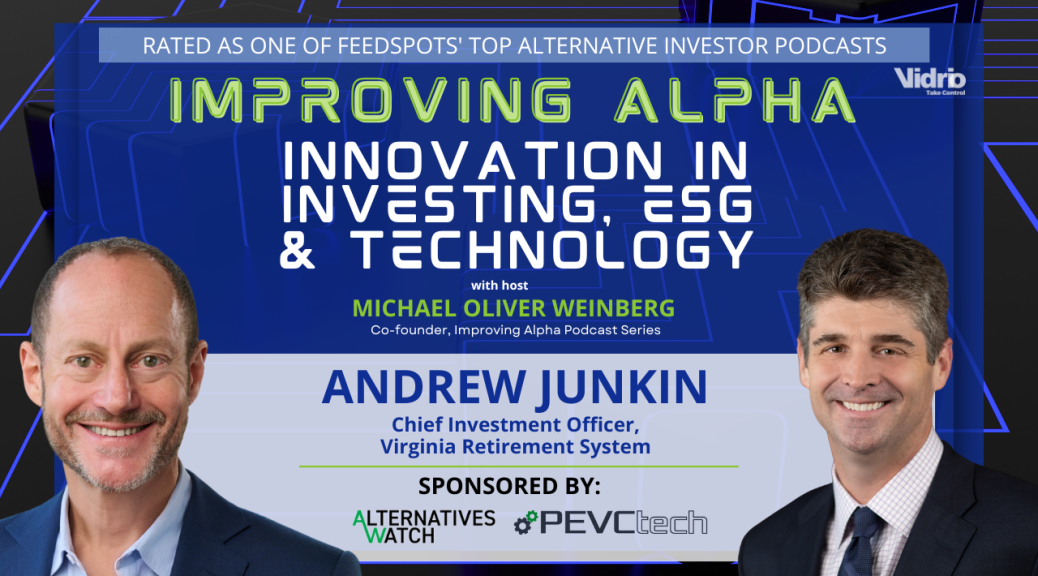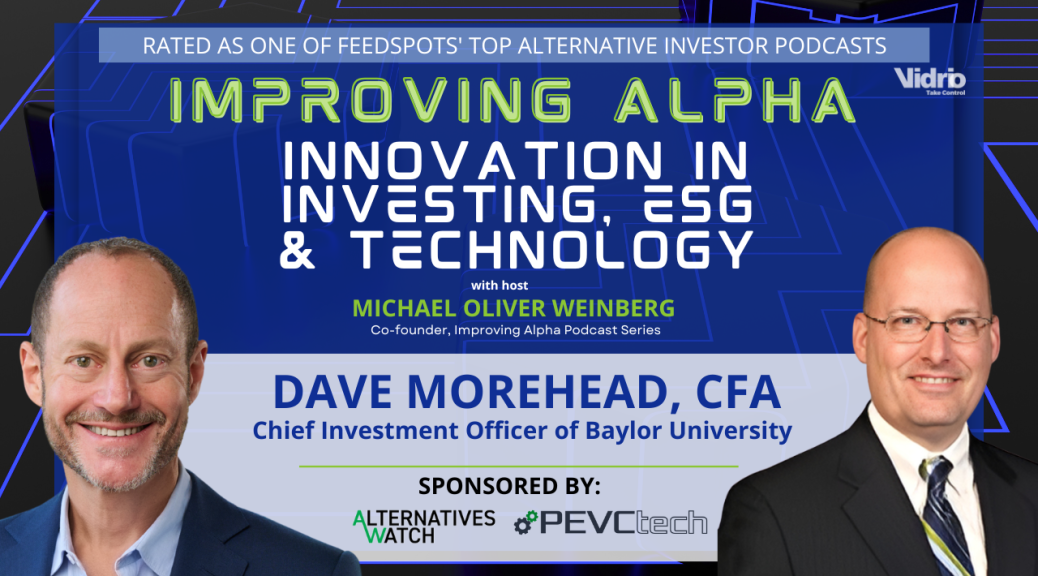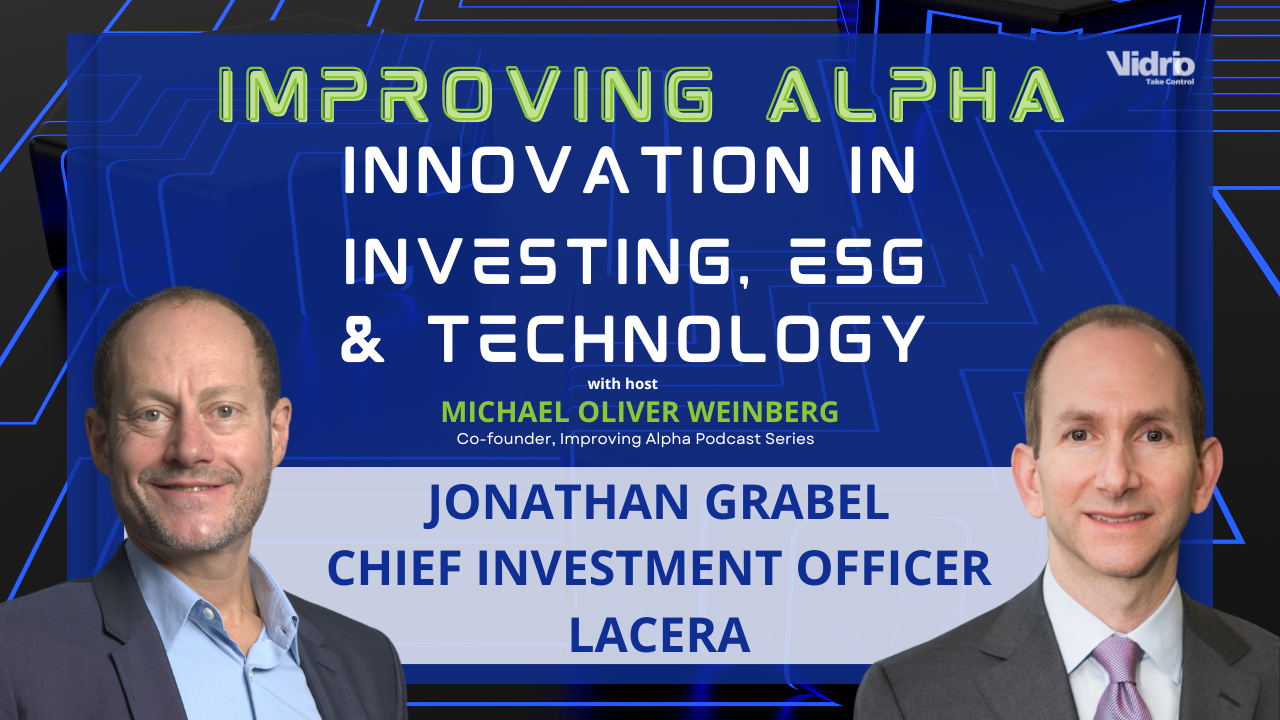
Improving Alpha: Andrew Junkin on Strengthening Defensive Layers in Pension Retirement Plans
Podcast: Play in new window | Download | Embed
There’s a famous sports adage on how great defenses win championships, but can defensive layers be efficiently applied to pension plans that have close to $128 billion in AUM and provide secure retirement benefits to 850,000 participants?
In addition to positioning your defense, how can CIOs reduce drawdown risk while navigating investment board politics, innovation goals, and uncovering longer-term sources of strategic alpha? In our first episode of 2026 for the Improving Alpha podcast, we uncovered allocation strategies for the Employees’ Retirement System of Hawaii.
This time, we traveled ~5,000 miles to welcome Andrew Junkin, Chief Investment Officer of the Virginia Retirement System (VRS). Host, Michael Oliver Weinberg, speaks with Andrew about his journey from investment consulting to moving east of the Mississippi, where he took on the CIO role at the State of Rhode Island during COVID, before landing at VRS.
Key takeaways from Andrew’s discussion include:
- Why, after 150 nights on the consulting road, did Andrew look for a career change?
- How does Andrew balance the Code of Virginia rules in avoiding large drawdowns by adding layers of defense to the portfolio?
- Can good investment decisions be freed up from political perspectives, and how does that shape governance of the $128BN fund?
- Does cash on hand actually create drag in asset owner portfolios, or does it help liquidity, avoiding the ‘shaking of couch cushions to fund capital calls and more?
- With equity prices and valuations at all-time highs, and spreads tightening, are there still investment opportunities out there to take advantage of for your beneficiaries?
- Red flags on asset gathering mode by fund managers, and flipping the right switches on investment partnerships.
- Why the Chief Investment title shouldn’t be about picking investments, but rather focus on machine building for the future.
- And more!
Connect with Andrew Junkin:
Connect with Michael Oliver Weinberg:
About Our Guest:
Andrew Junkin serves as the Chief Investment Officer of the Virginia Retirement System where he manages and oversees the investment program for the fund, valued at more than $100 billion. The fund serves approximately 773,000 active members, retirees and beneficiaries. VRS covers teachers, state employees and most employees of the Commonwealth’s counties, cities, towns and political subdivisions.
Previously, Junkin served as the Chief Investment Officer for the State of Rhode Island’s pension plan, defined contribution and 529 plans, as well as cash and operating funds and debt management program.
Prior to his public fund experience with Rhode Island, he worked at Wilshire Associates in California and Colorado, where he served in various capacities, including Managing Director and President from 2015 to 2020. During his tenure, Junkin also served as the Lead Consultant for a $400 billion pension plan and was responsible for driving overall strategy, asset allocation, risk management, implementation and sourcing new strategies.
From 1995 to 2005, Junkin was the President of Asset Services Company in Oklahoma City, Oklahoma where he served as Lead Consultant for family office and foundation clients.
Junkin holds a Master of Business Administration from the Wharton School and a bachelor’s degree in Business from Oklahoma City University.
The information covered and posted represents the views and opinions of the guest and does not necessarily represent the views or opinions of Vidrio Financial, and/or our host, Michael Oliver Weinberg. The Content has been made available for informational and educational purposes only. The Content is not intended to be a substitute for professional investing advice. Always seek the advice of your financial advisor or other qualified financial service provider with any questions you may have regarding your investment planning.
The release date may not correspond to the recording date.



